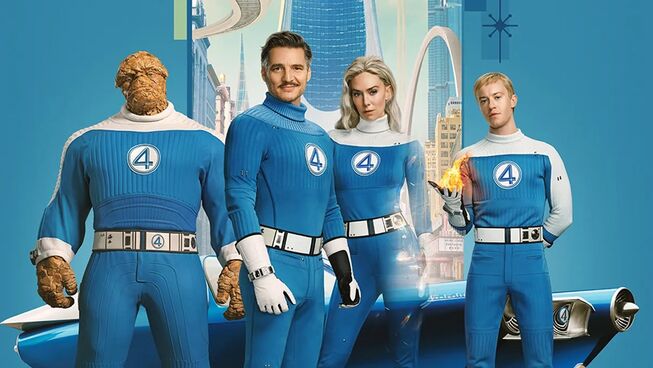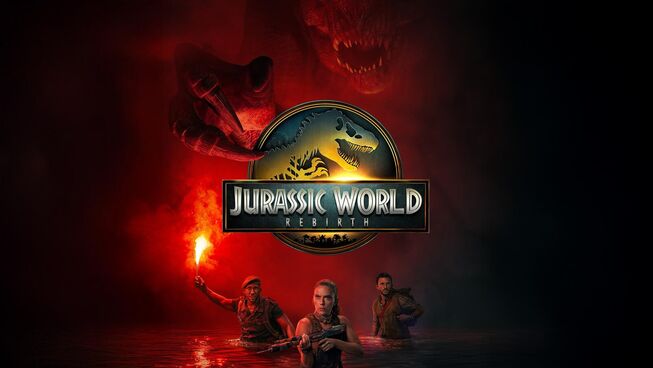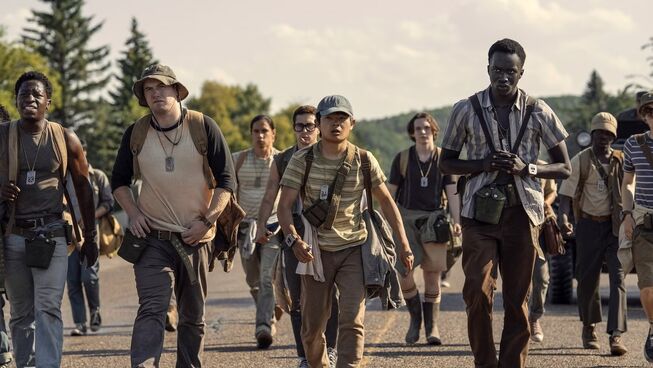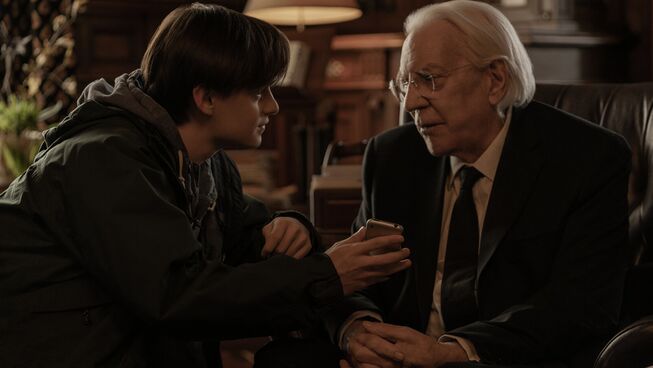The Running Man
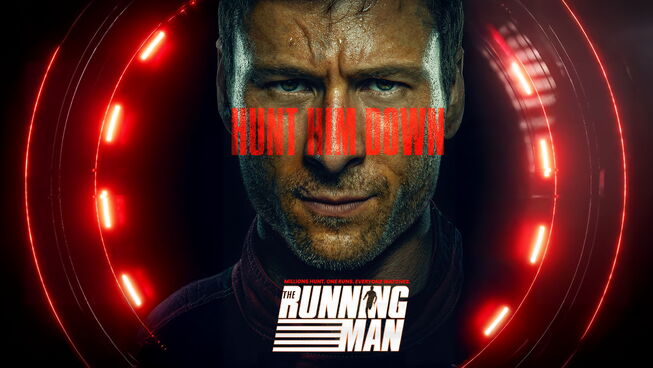
⭐️ ⭐️ ⭐️ ½ (out of 5)
The combination of the prolific, legendary writer Stephen King and the provocative, innovative filmmaker Edgar Wright (Last Night in Soho, Baby Driver) feels like an ideal union of talent. Then, to take on the classic 80s novel and film, The Running Man, this dystopian action tale could be an invigorating and electrifying combination.
For those who are not familiar with the novel or the Arnold Schwarzenegger vehicle from 1987, audiences are taken into the not-too-distant future. In a world where reality television has reached a new level of societal involvement, the crown jewel is The Running Man. A competition in which Runners are set loose on the public, who must survive for 30 days while being hunted by trained Hunters and members of society. The rewards are great, but participants rarely reach the end before being assassinated. In a moment of desperation, Ben Richards (Glen Powell), a working-class labourer who cannot find work, and his daughter are sick, and he signs up for the show. He defies the odds and becomes a fan favourite. Still, as the pressure from producer Dan Killian (Josh Brolin) and the public mounts, more people want him to fail than to survive.
In our world where storytelling is dominated by AI-generated reels on social media and reality television, these two legends in the filmmaking realm offer something old-school and potentially refreshing at cinemas at the same time. King’s layered characters and Wright’s unique eye for action, horror and visual mastery draw viewers into a familiar dystopian world that has been imitated extensively over the years. Yet, Glen Powell represents a new generation of actors who emulate the best of the past and the future with his interpretation of the angry Ben Richards. A role complemented by a great supporting cast who commit to the story despite the amount of screen time they receive. William H. Macy, Lee Pace, and Michael Cera embolden their characters, while Colman Domingo and Josh Brolin take their evil personas to new levels of media-fuelled villainy.
Despite the strong set-up and nod to the action heritage it looks to emulate, something went wrong as the running man came around the track's final turn. There was a cheekiness and intensity that gave this storyline an originality that made this decades-old text feel contemporary, until the final act, when things come to a crawl. As the end of the road looms ahead, every character gets a chance to monologue about all that ails them. Unexpected allies emerge, trigger-happy hunters hesitate, and the whole chase becomes a road trip that causes things to grind to an unwanted halt. Then the conclusion feels like the production ran out of funding and had to find a cheap way to finish the race. All of the ingredients were initially on offer there for a winning combination of innovation and filmmaking. Still, the whole production ran out of steam at the end.
The Running Man could be defined as a rabbit (runner) during a track and field event with a great start and exciting potential. Yet, this speedster fails to see the long game and burns out before the finish line. Not to say there isn't anything worthwhile in this action-adventure. Unfortunately, strong starts don't always translate into great endings, and this movie loses its way as it struggles to reach the finish line.
Reel Dialogue and Third Space have entered the world of YouVersion: Download the app, dive into the plans, and engage with the Bible in a fresh and exciting way.
Reel Dialogue: How much are you willing to sacrifice for others?
This question of selflessness is a key element of Ben Richards' story as a father, husband, and man. A question asked by men and women throughout history. They may not have had to put their lives on the line, but there is still much to celebrate in their achievements. Still, the question begs the answer: who and what gets left behind in the aftermath of these decisions? The cost involved may have positive and negative implications for all involved.
Beyond this dystopian world of violent reality television, people in professions worldwide need to consider this. Missionaries, pastors, business leaders, and politicians, amongst others, must consider these questions. The Running Man begs this question: What would you be willing to sacrifice for the sake of others and those you love?
Regardless of how admirable the intentions may be, the relational impact must be considered.
If you are wondering what the Bible has to say about this query, look no further than the person of Jesus. Open one of his biographies today to discover what example of sacrifice we must all contemplate.



